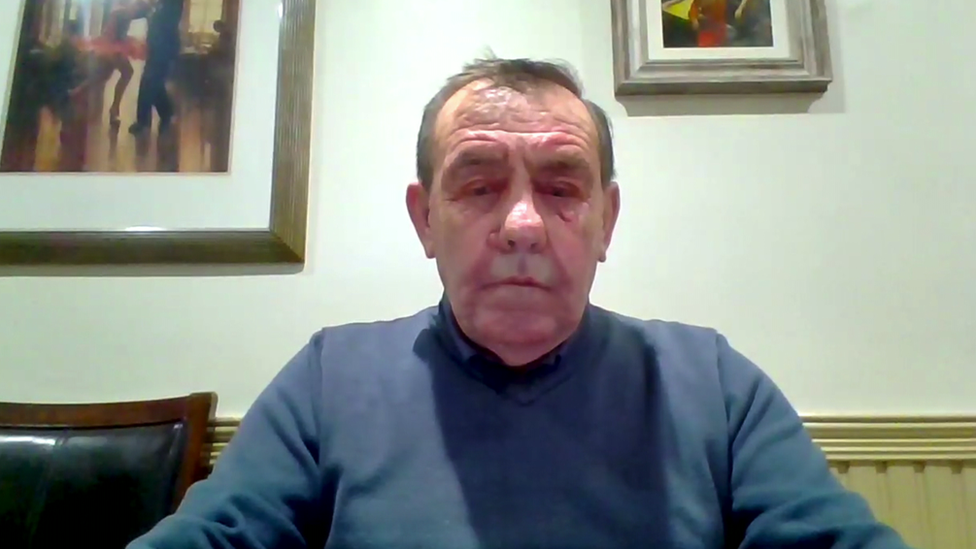New robotic probe speeds up lung cancer diagnoses
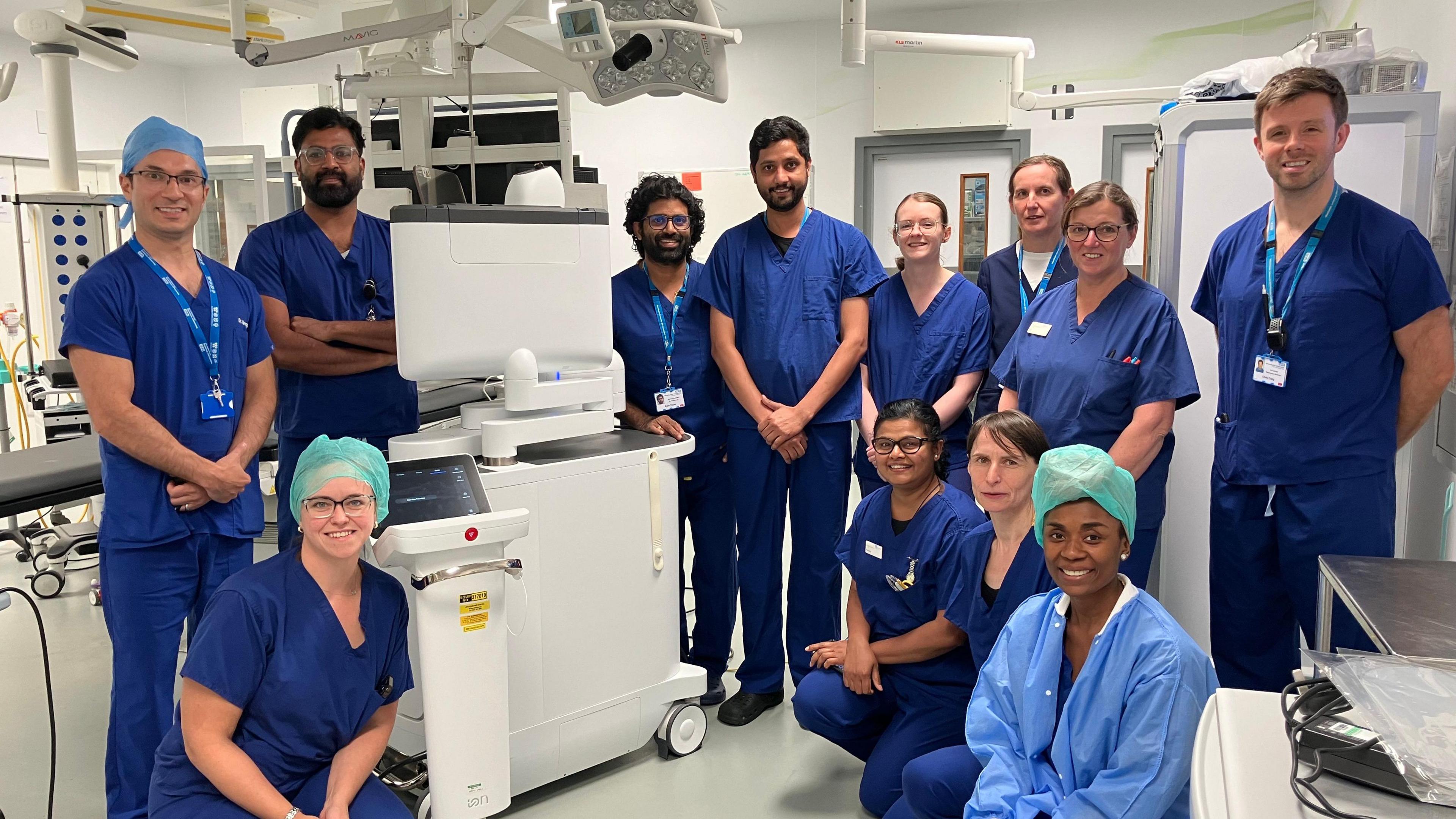
Staff said the probe has had a 100% success rate in helping reach a diagnosis
- Published
A new state-of-the-art robotic probe is helping to speed up the diagnosis and treatment of lung cancer.
Doctors at Wythenshawe Hospital in south Manchester are among the first in Europe to use the Ion system, which makes it possible to detect the disease at its earliest stages.
Dr Haval Balata, consultant respiratory physician at Manchester University NHS Foundation Trust, said the "game-changing" technology would see patients either being given the all-clear or starting treatment months earlier than had previously been possible.
He said Ion allowed clinicians to "safely and accurately get to very small spots or lesions within the lungs".
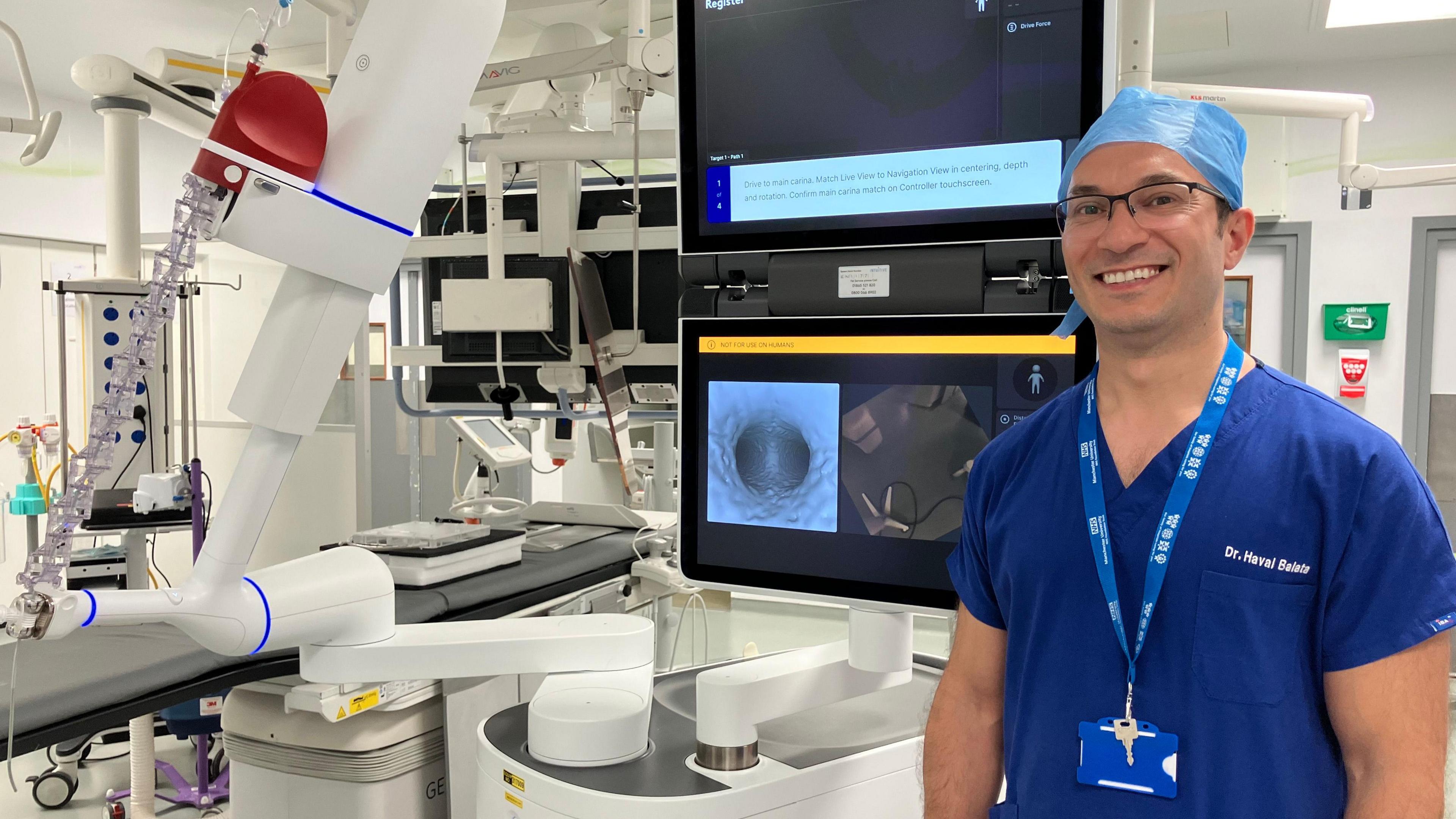
Dr Haval Balata is one of the clinicians using the new technology at Wythenshawe Hospital.
Because small lung nodules are often hard to reach using traditional biopsy methods, some patients face months of anxiously waiting to find out if they have cancer.
The new Ion Endoluminal System allows medics to quickly and accurately examine even the deepest and hardest-to-reach areas of the lungs.
Dr Balata said the technology would enable "definitive answers" to be given to patients much sooner.
"If that diagnosis is cancer," he said. "That would mean treating things earlier, which obviously has better outcomes."
'100% success'
According to the NHS, about 48,000 people are diagnosed with lung cancer every year in the UK.
It is also responsible for about 35,000 deaths each year.
Greater Manchester has a significantly higher number of people diagnosed with lung cancer than the national average.
Patients diagnosed at the earliest stage of lung cancer are nearly 20 times more likely to survive for five years than those who receive later diagnoses.
The new Ion probe allows clinicians to detect "abnormalities that we wouldn’t have been able to sample with the technology we had before," said consultant Dr Chris Craig.
The team at Wythenshawe had "hit the ground running", with a "100% success rate in terms of reaching a diagnosis", he added.
Dr Craig said they were hoping to "accelerate the programme quite significantly", with a long-term ambition of using the probe on up to 35 patients a week.
Listen to the best of BBC Radio Manchester on Sounds and follow BBC Manchester on Facebook, external, X, external, and Instagram, external. You can also send story ideas to northwest.newsonline@bbc.co.uk, external
Related topics
- Published26 September 2024
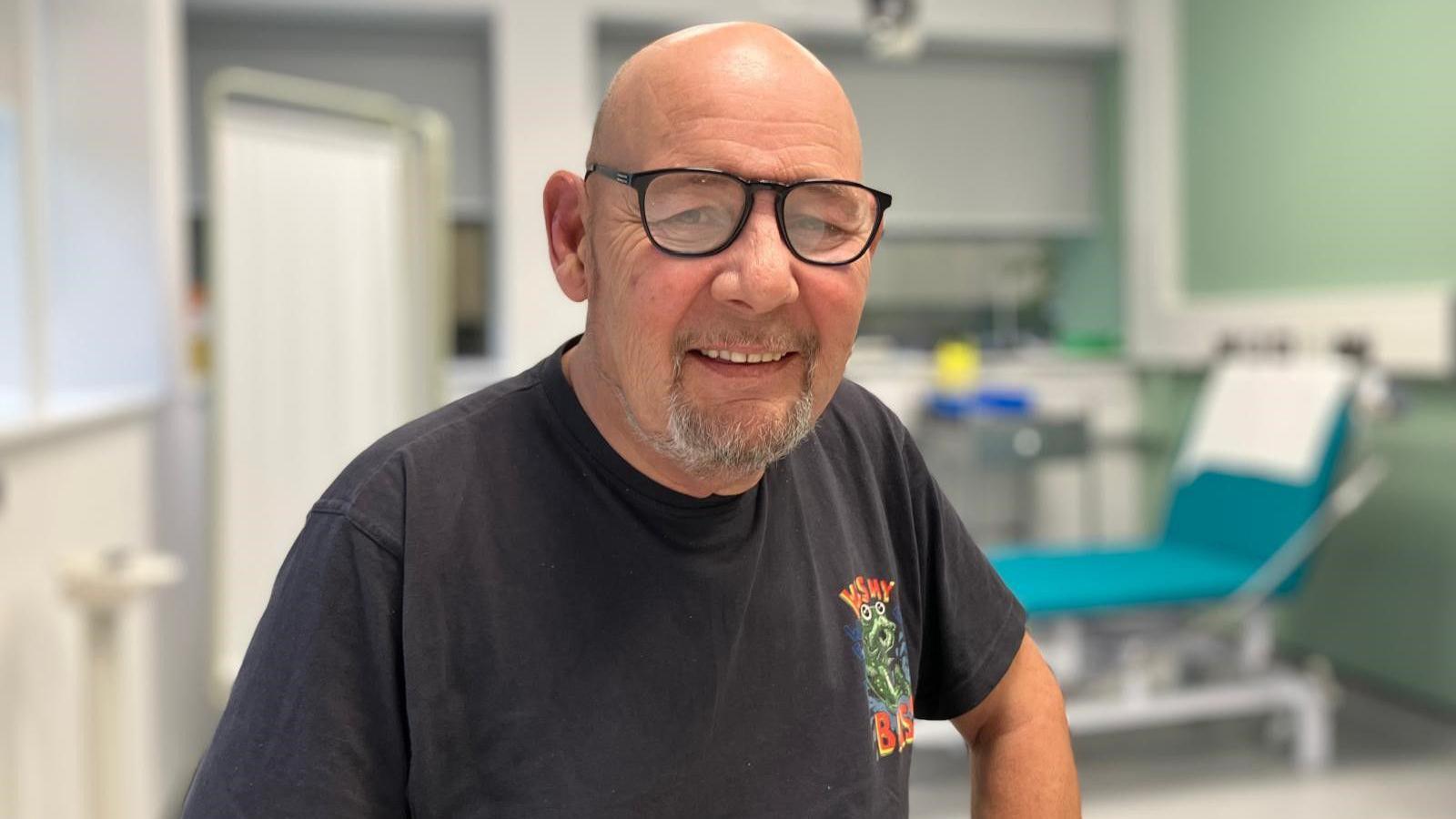
- Published23 August 2024
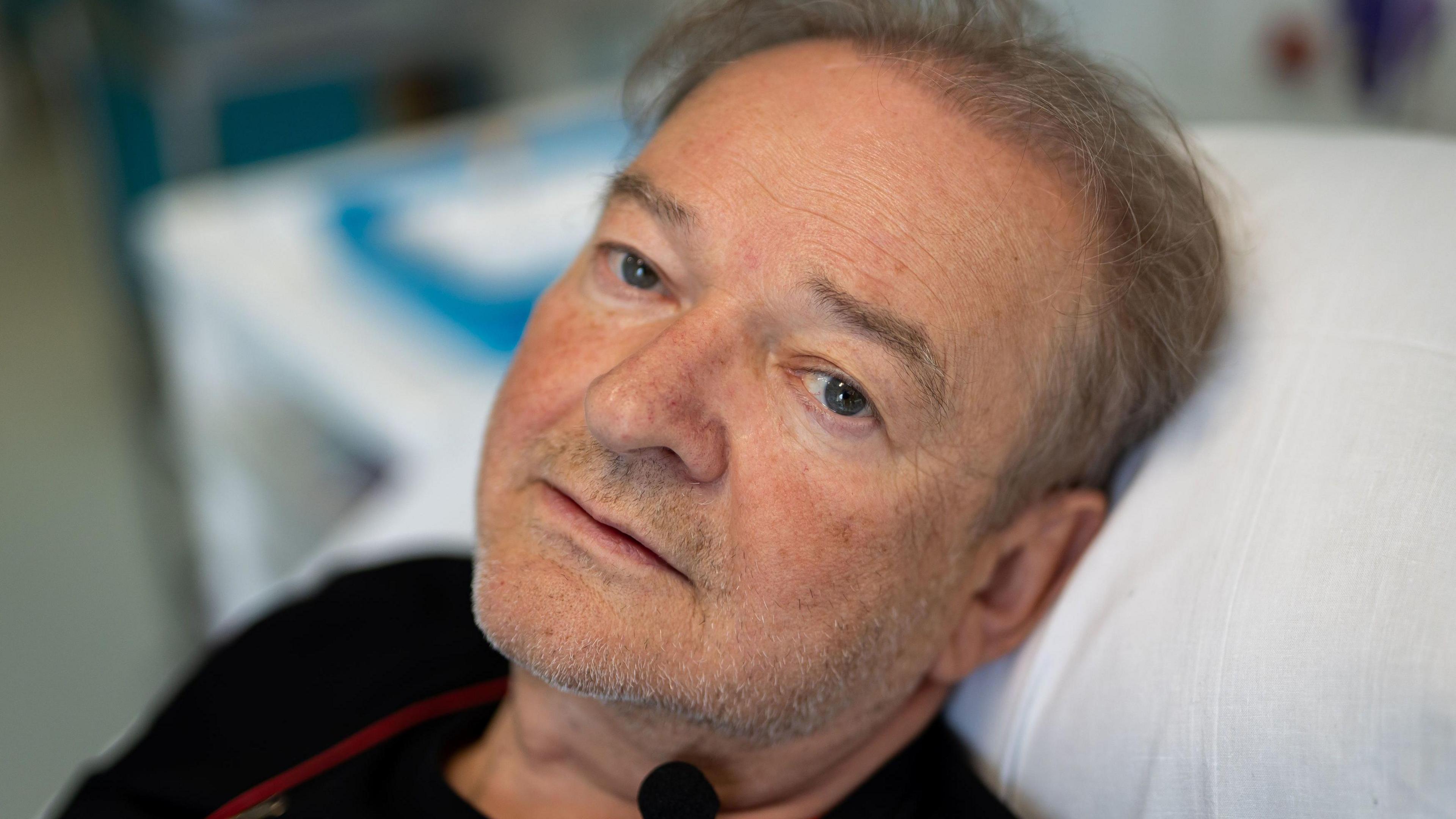
- Published27 November 2023
